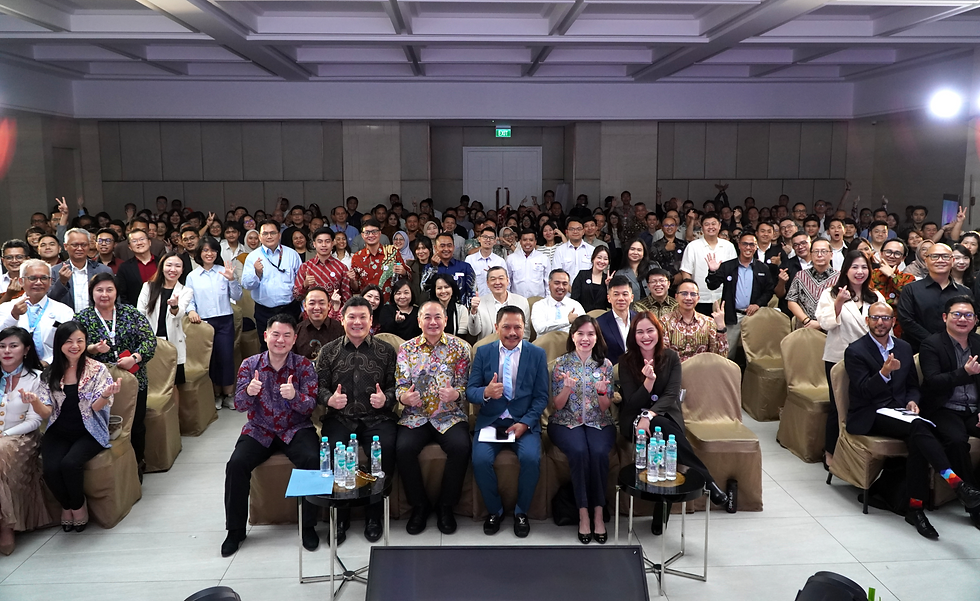Championing Inclusion: Strategies for Fostering Diversity in Your Workplace
- TechConnect

- Jan 9, 2024
- 3 min read

Picture source: GettyImages
Given the diversity in our country and the evolving landscape of today's workplaces influenced by technology and changing environments, it is imperative to comprehend and navigate cultural differences to establish an inclusive workplace culture. The corporate structure and inherent biases in established systems may, at times, create a sense of exclusion among different groups. To counteract this, businesses often implement Diversity, Equity, and Inclusion (DEI) strategies, aiming to encourage employees to embrace their diverse beliefs and backgrounds, promoting mutual learning. While these DEI strategies represent a significant systemic advancement, it is crucial to acknowledge that any workplace transformation requires a cooperative effort involving both employers and employees.
Employees have numerous avenues to promote diversity and inclusion in the workplace. Implementing these strategies unlocks opportunities for intercultural communication and fosters distinctive modes of thinking for fostering diversity in your workplace.
1. Be aware of unconscious bias
It's a universal reality that everyone possesses biases, and it's virtually impossible to be completely free from them. Frequently, our biases stem from factors such as the culture we were raised in, our social circles, family influence, and exposure to social media. Unconscious biases, as they are commonly termed, often operate unnoticed, influencing our everyday language. Expressing biases, even inadvertently, has the potential to perpetuate behaviors and systems that marginalize specific social groups. For instance, assuming that individuals in managerial or CEO roles should be men, without seeking information or conducting research, reinforces the notion that men are more suitable for positions of power. Gender-based stereotyping, overlooking merit, is just one instance; similar biases may exist in relation to age and race profiles, among others.
2. Promote pay equity
In contemporary times, certain payroll practices are considered outdated; nevertheless, some companies continue to resist the idea of payment equity. Payment equity asserts that individuals in comparable roles with similar responsibilities should receive equal compensation, irrespective of cultural background, gender, sexual orientation, or religion. If you hold a supervisory position, work in HR payroll, or are in a role overseeing employee salaries, you can actively support the cause of payment equity. Utilizing tools like people analytics can help managers identify any salary disparities within their teams. Leaders can analyze trends across departments to uncover underlying issues. Advocating for pay equity, even in small ways, is a meaningful step toward fostering diversity and inclusion in the workplace.
3. Engage with diversity efforts
Is there a diversity board in your organization? Do they organize events to celebrate various cultures throughout the year? If they do, consider actively engaging in these initiatives to demonstrate your commitment to fostering workplace inclusion and diversity. You can contribute by volunteering for diversity-related events, joining a mentorship program, or participating in activities focused on inclusion. By doing so, you not only show your support for internal initiatives but also encourage others to get involved. In case your workplace lacks such activities, think about initiating them yourself. For instance, you could propose a weekly cultural activity where team members share aspects of their culture, or suggest a mentorship program where established figures from minority groups mentor emerging workers.
Building upon the importance of workplace inclusion and diversity, TechConnect actively champions these values through a range of policies and initiatives. TechConnect actively champions workplace inclusion and diversity through policies and initiatives, including an impactful Diversity and Inclusion Task Force. The company ensures equal career opportunities for women, provides inclusive training, and organizes events celebrating cultural diversity. TechConnect's commitment is further evident in mentorship programs supporting the professional development of underrepresented groups, showcasing its dedication to fostering a diverse and collaborative workplace.
Source: My Careers Future





Comments